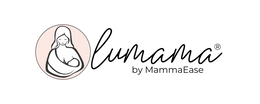"The negative feelings you may experience about your postpartum body could be about more than just your physical appearance. The loss of a woman’s pre-baby body (the body you’ve gotten used to and known since becoming a woman) is tangible, visible evidence (and a reminder) that her life and identity has changed significantly, and that can feel incredibly scary, isolating and overwhelming.
According to the NYT, the body is symbolic. “For many new mothers, a struggle with body image is intertwined with the desire to reclaim parts of themselves that have been pushed aside by the physical and emotional demands of new parenthood. Have compassion for yourself as you go through this identity transition, and be as gentle with your own body as you are with your baby’s.”
Many new moms, myself included, struggle with this transition to new motherhood. As therapist Michelle Malloy, explains, the many changes women face after having a baby can “hit like a ton of bricks.” I remember crying hysterically after my first was born because my husband abruptly stopped calling me “hottie” — the nickname he’d given me the day we met — and started calling me “mommy” instead. It made me feel like he no longer saw me as sexy or desirable, and instead, my identity was now only that of “mom.”
More often than not, a baby can change your relationship with your partner. You may feel less romantic, more resentful (especially if you’re the one consistently getting up in the middle of the night with the baby… ), and less connected emotionally and physically.
There’s also the loss in autonomy and independence. After a baby arrives, a woman’s time doesn’t truly belong to her anymore (her baby’s schedule likely dictates her own!). Not to mention the major changes (often losses) many women experience in their careers.
History of Disordered Eating and Distorted Body Image
Michelle also says that a strong predictor of negative body image after pregnancy is negative body image before pregnancy, as well as a history of disordered eating.
In addition, for many women who have worked hard to gain control over an eating disorder or unhealthy body image concerns, the hyper-focus on one’s body and weight during pregnancy, as well as the necessary pregnancy weight-gain, may trigger a relapse.
According to the National Eating Disorder Association, “the incessant counting, comparing, and measuring that happens during those nine months and beyond can tap into some of the very vulnerabilities that are linked to eating disorders and food and weight obsessions.”
Protective Measures to Take During Pregnancy
Have Realistic Expectations
Our bodies don’t miraculously transform back to their pre-baby versions once we give birth — this is a fact we just have to accept. That’s one of the reasons we tell readers that when packing their hospital bags, they should bring loose-fitting and/or maternity clothes to wear home, as they’ll still look about 6 months (give or take) pregnant. Understand that this is normal and healthy. Rather than focusing on appearance, Michelle tells her patients to focus on how they feel instead.
Change your Wardrobe
Moms, again, you aren’t going to magically fit into your pre-baby wardrobe after delivery. It takes months for your body to return to some form of normalcy, if ever.
You will likely go through an awkward period of not knowing what to wear. Meg remembers walking into a department store about three months after delivering and having NO idea what she needed, wanted or what would even fit. When an associate asked her what she was looking for, she replied, “I don’t even know anymore.”
While investing in pieces that you see as temporary might not feel like a great use of money, it’s super important to have some nice things to wear that make you feel comfortable and confident.
It’s okay to buy some new maternity and nursing clothes, or loose and flowy clothing that flatters your body.
Our guide to nursing wear includes many economical pieces for the postpartum time period.
Have fun with this! Michelle encourages women to forget about their pre-pregnancy clothes (buh bye jeans, hello maxi dresses and elastic band pants).
She also suggests doing something fun and exciting — like Rent the Runway — so you can consistently change up your pregnancy and post-pregnancy wardrobe (and always have stylish, new clothes that fit you well) without having to actually commit to buying anything.
Mindfulness Activities
If you find yourself so preoccupied with your weight gain (or fear about not being able to lose the weight after you have the baby), try some deep breathing techniques and mindfulness exercises. Apps like Calm, Headspace and MamaZen are great for this. Journaling and writing about your concerns may also be a good way to let them out.
Speak Up
I swear, people are fascinated by pregnant women — it’s like we’re an alien species that humans can’t believe they get to see up close and in real life. When I was pregnant, I was shocked by the amount of complete strangers who found it totally acceptable to comment on or want to touch my round belly.
If people around you — friends, family, strangers, etc. — are constantly talking about or focused on your body and it’s making you uncomfortable, don’t be afraid to tell them to stop. Michelle encourages women to simply say, “Please stop making comments about my body.”
Ask for Help
If these tips aren’t working for you and you are still worried about how you might feel about your body after you give birth, don’t be ashamed to seek professional help. Being proactive now will help you (and your baby) tenfold in the long run."
.
The above excerpt is from Lucie's List and written by Marissa Bader. We hope you'll join us as we continue to share helpful information and encouragement on this topic. Stay tuned!

Dejar un comentario